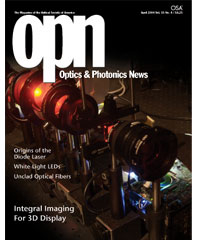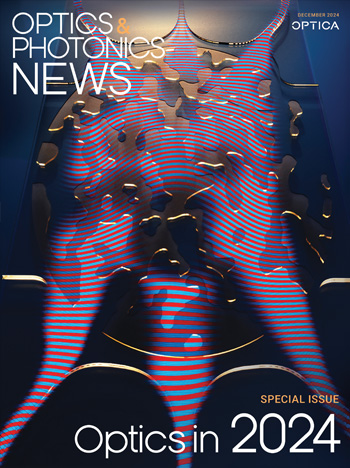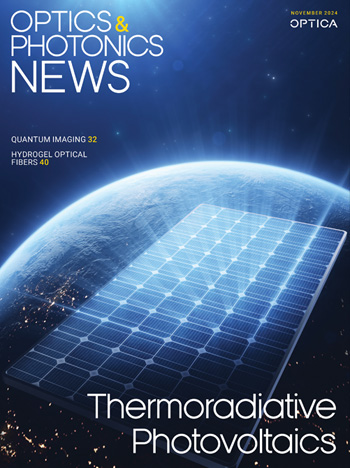
April 2004 Issue
Feature Articles
A New Nano-Twist for Unclad Optical Fibers
High-quality bare nanofibers are a novelty, but the idea of making them actually goes back 40 years to the work of a pioneering group in Britain. Today researchers believe that unclad submicrometer fibers hold promise for applications in a range of areas, including microphotonics and environmental sensing.
by Jeff HechtWhite-Light LEDS
In the not-too-distant future, improvements in luminous flux and luminous efficacy are expected to enable use of white-light LEDS in automobile headlights, large-screen LCD backlighting and general home lighting.
by Yukio NarukawaThe Diode Laser: The First 30 Days, 40 Years Ago
Forty years ago, four groups of researchers independently developed and demonstrated their own versions of the injection laser, launching a technological revolution in the process. Their exciting early research paved the way for the vast array of materials and technologies used in the production of modern semiconductor alloy devices.
by Russell D. DupuisTime-Multiplexed Integral Imaging For 3D Sensing and Display
We perceive the world in depth as well as in color, but the generation of high-quality three-dimensional (3D) images is still an area that is fraught with challenges for researchers. Now a ray-optics-based technique—integral imaging—shows promise for 3D TV and visualization.
by Ju-Seog Jang and Bahram JavidiDepartments and Columns
Antonio de Ulloa’s Mystery
De Ulloa was remarkable for being not only a naval officer and high-level official, but also one of the most renowned scientists of his day. He was a participant in the Spanish expedition to measure the arc of longitude in 1736, a student of the geology of South America, a student of botany and an observer of optical phenomena.
Transmission of Light Through Small Elliptical Apertures (Part 2)
Last month, in Part 1 of this column, we analyzed the interaction of light with a subwavelength elliptical aperture in a thin metal film. The incident plane wave was assumed to be linearly polarized along the ellipse’s major axis. In this second and final installment, we take up the case of incident polarization aligned with the ellipse’s minor axis.
An Executive Director for OSA
Two important milestones in OSA’s history—appointment of the Society’s first executive director and the purchase of the headquarters building—are highlighted in this column.

![An artist’s rendering of a pulse of circularly polarized light hitting a 2D semiconductor. [Illustration by S. Alvey / University of Michigan]](https://opnmedia.blob.core.windows.net/$web/opn/media/images/articles/2025/0125/departments/202501-cover-web.jpg?ext=.jpg)

